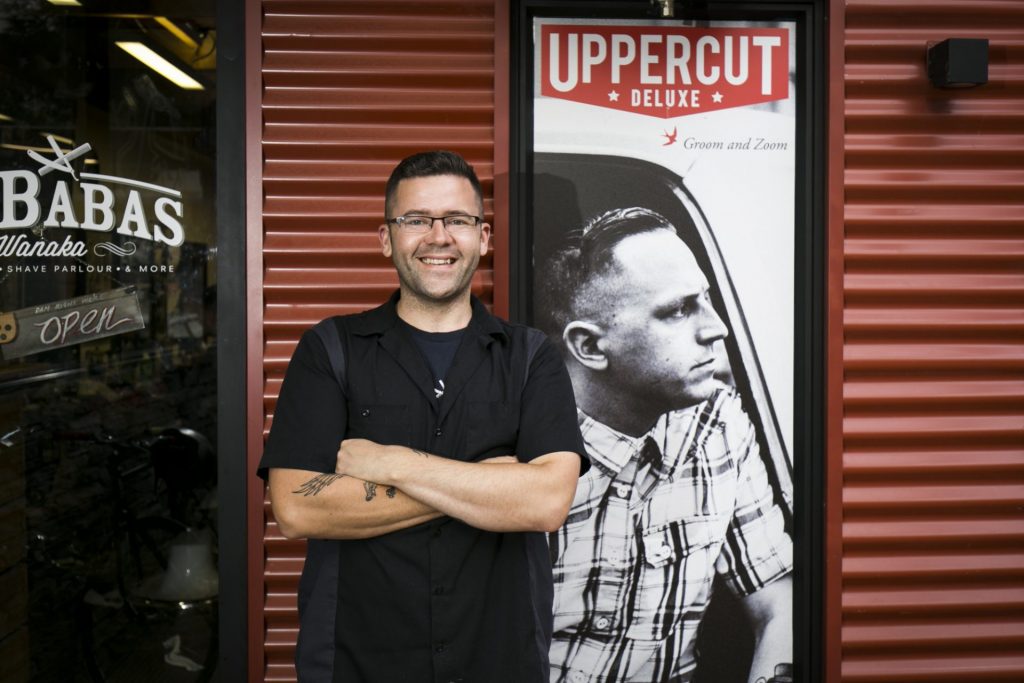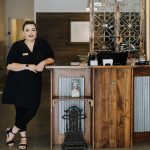Like many business owners, Peter Wells’ entrepreneurial spirit was obvious before he left school.
Cutting his friends’ hair in the toilets might have planted the seed for a successful business, but the skills he developed on the way have been the making of him.
When Peter’s Mum agreed he could leave school at 17, it was on the condition he go to the local polytechnic to study hairdressing. After a year of study, he started his apprenticeship training.
ON THE JOB TRAINING
The salon catered for an older clientele. Doing perms and sets for women might have put some young men off hairdressing, but Peter says they were essential skills for him to learn at that point in his training. An apprenticeship is designed to ensure the apprentice learns the full range of skills required to work in a range of professional roles.
In his third year, Peter wanted to learn more complex colours and fashion work, so he moved to a salon in a more central location with clients wanting more modern styles. After proudly completing his National Certificate in Hairdressing (now the New Zealand Certificate), he graduated to a senior stylist position.
By 21, Peter was keen for a change of scene, so he and his friends packed up a car and headed to the South Island.
“We did an apple picking season in Nelson. I definitely appreciated hairdressing after that – it was so monotonous. It took me an hour and a half to fill a bin with apples –in the same time I could have done two cut and blowwaves and earned three times as much.”
It wasn’t long before he was wielding scissors again, though this time in a barber’s shop.
Peter and friends arrived in Wanaka when skiiers had taken most of the jobs, and flats.
“After knocking on doors for two days and getting refused I decided I should think about hairdressing again.”
A hairdresser turned him down, but two doors down was a tiny barbershop.
VALUABLE SKILLS
The barber was planning on taking a holiday and needed someone to hold the fort of his one-man band Ali Baba’s.
“After testing me with clients, and teasing me about cutting like a hairdresser not a barber, he said you can look after the shop – you pay me $250 a week and the rest you can keep.”
“At first I thought this was a bit rough, but it got me thinking how much he might be making. I had never made so much money as that fortnight. I think I cleared $1500 after paying him. I was pretty stoked, especially after apple picking.”
When the barber returned from holiday, Peter continued working in the shop, renting a chair from him. Peter faced a steep learning curve working for himself, particularly the tax implications that came with it. But he was quick to see a business opportunity – convincing owner Ali to open the shop on Saturdays.
“It took about six months for Saturdays to become constantly busy. I didn’t mind – I’d go in and watch cartoons and read the paper. As it got busier Ali would come in and help me.”
After a year of renting a chair, Peter bought the business. On Ali’s advice, he kept it on the down low.
“He said I had to keep it quiet because a lot of the older locals wouldn’t like it. He was right.”
By now, the shop was in a bigger location and Peter had taken on another permanent staff member.
BUSINESS GROWTH
“That’s when I got into training. A lady had come in a few times, determined she wanted a barbering apprenticeship.”
Peter has since trained six apprentices for his business. Ali Baba’s (Peter kept the name) now has four chairs and a steady turnover. As the business has grown, so have the responsibilities.
“The business stuff has been what’s kept me stimulated. I’m constantly improving the business. I’ve developed better banking habits, electronic reporting and linked payroll systems. As the business grew it became more about managing people because that’s what I had to do.”
Training apprentices has helped him keep pace and kept his own skills fresh.
“I feed off their passion, their enthusiasm, their connection to a younger group where trends are getting followed. Having them keeps your skills at the top – you can nail that latest haircut.”
Though he didn’t set out to become a barber, Peter has enjoyed the different directions his career has taken and the role he plays in the local community.
“I remember being told it’s a great career, you can travel with it, all that. But there’s so much more. You get to meet some awesome people. And to provide a service for a town is a real privilege.”
“There are great business opportunities. If you surround yourself with humans, you’re not going to run out of work.”

Peter Wells outside his barbershop Ali Barbers


 linkedin.com/NZHITO
linkedin.com/NZHITO


